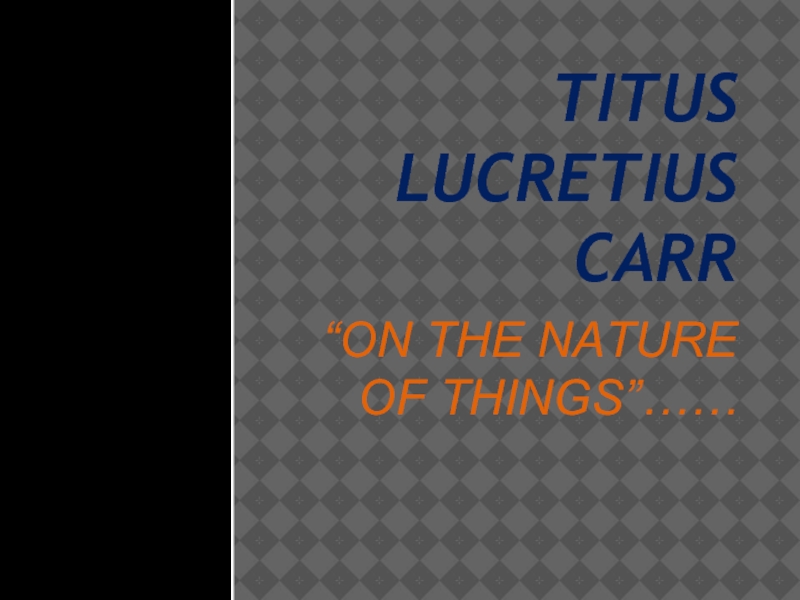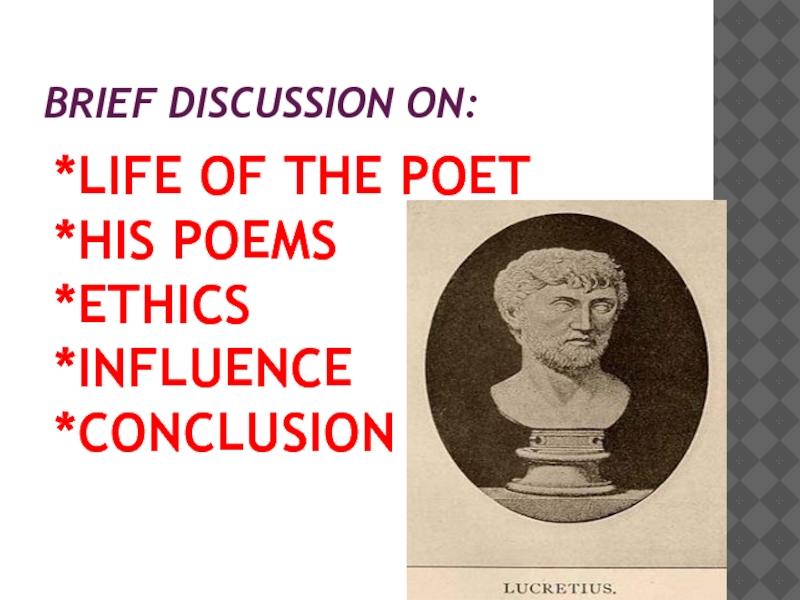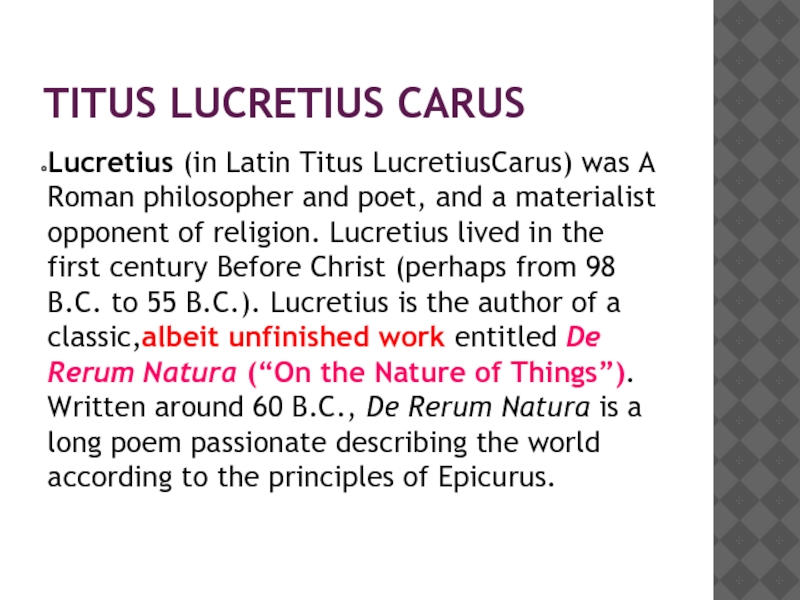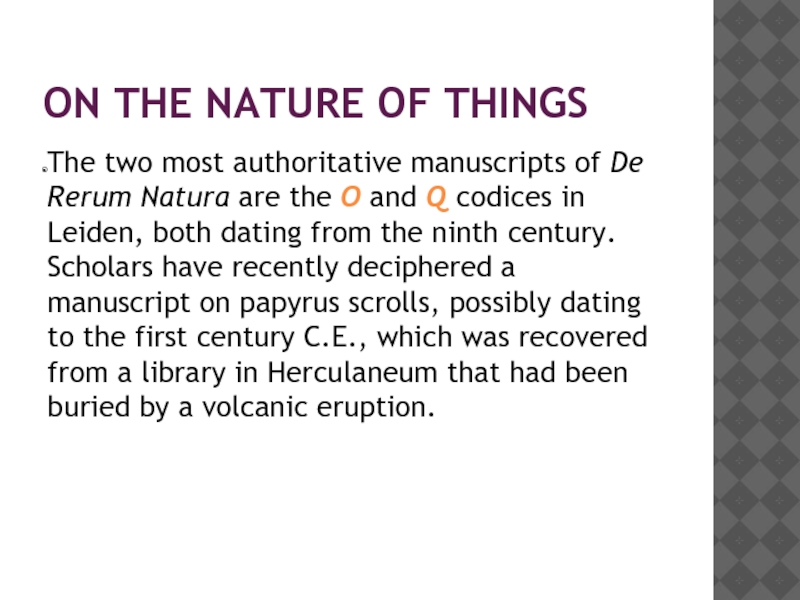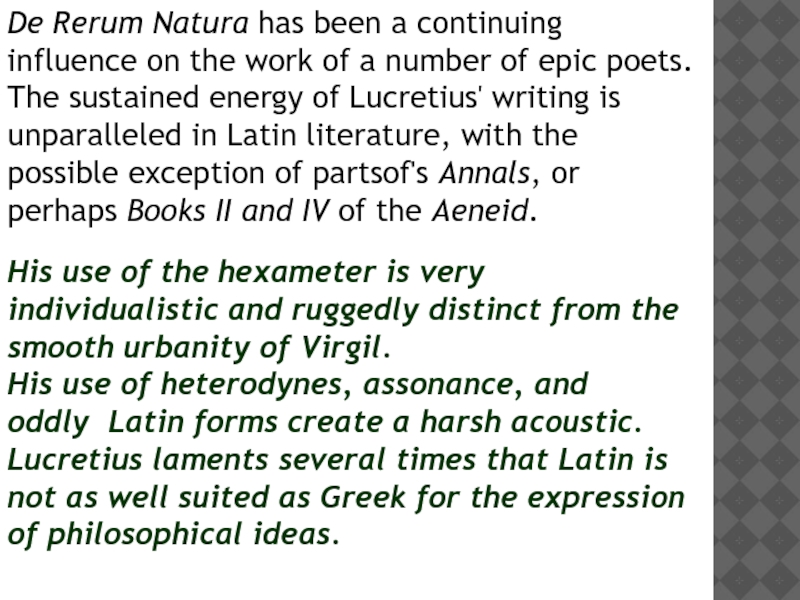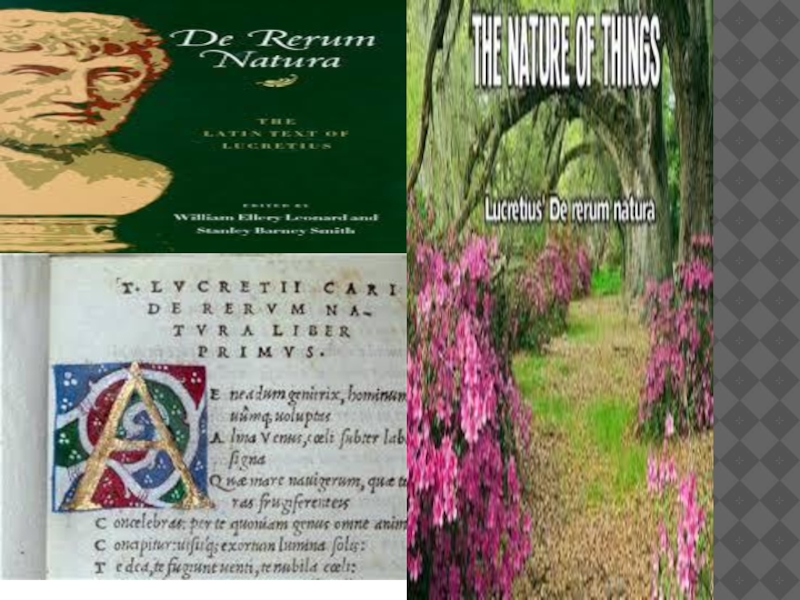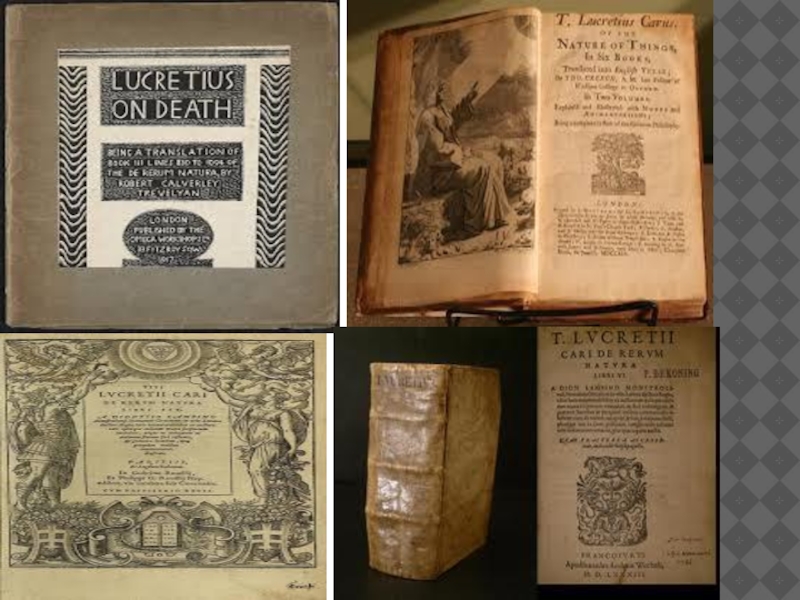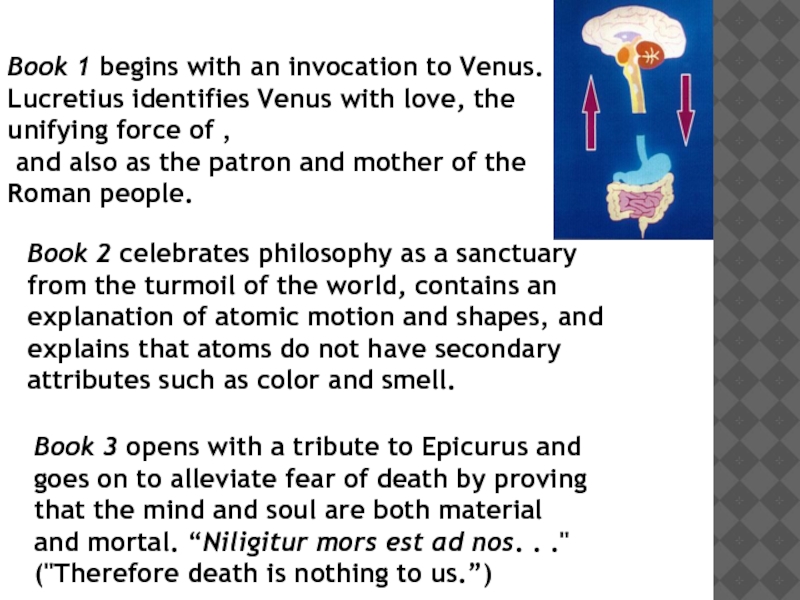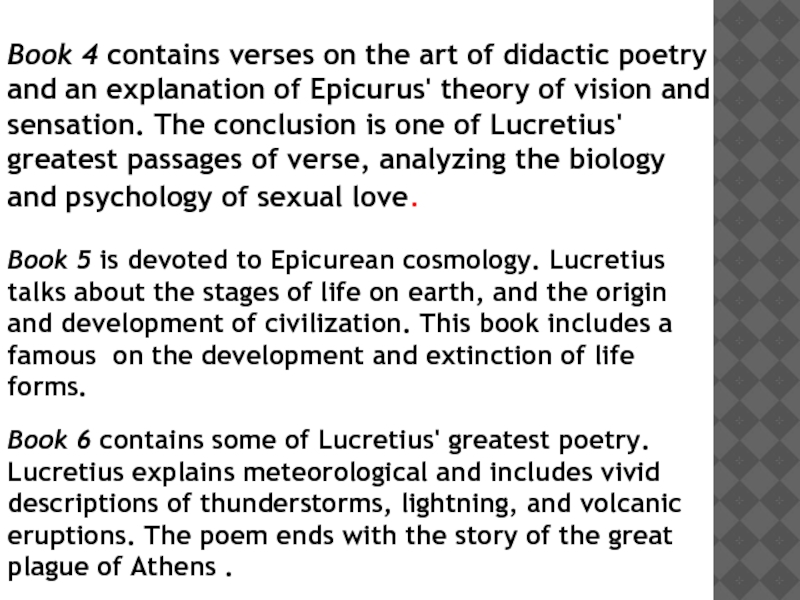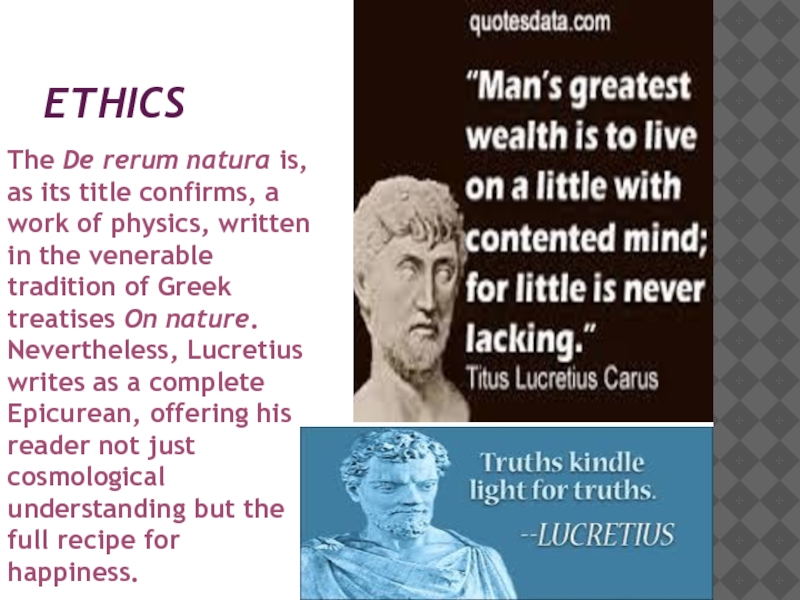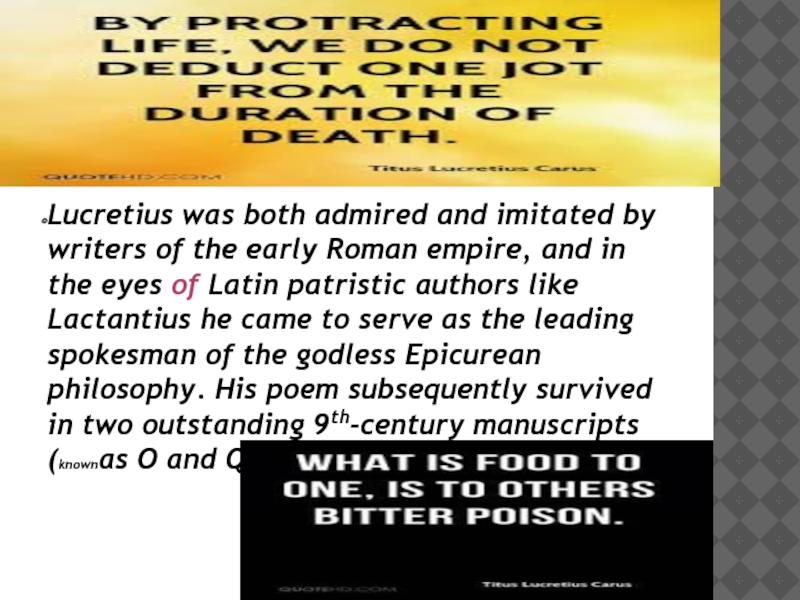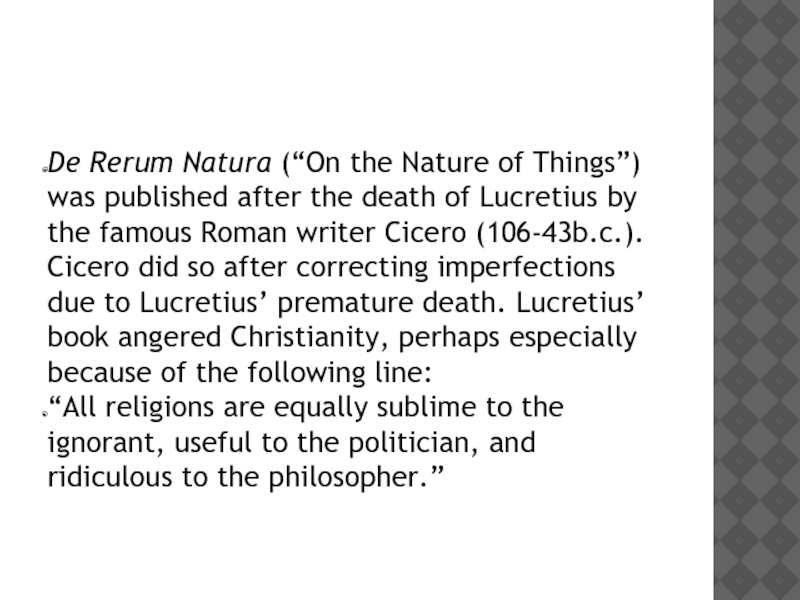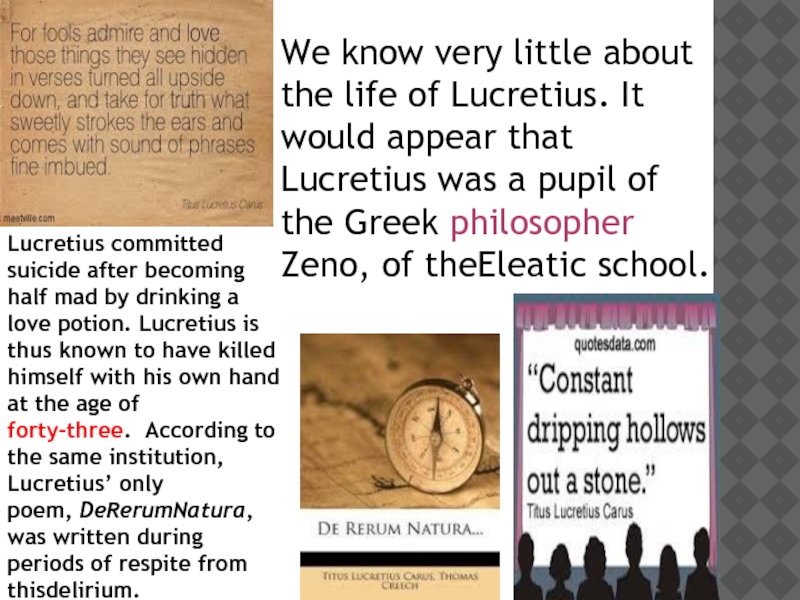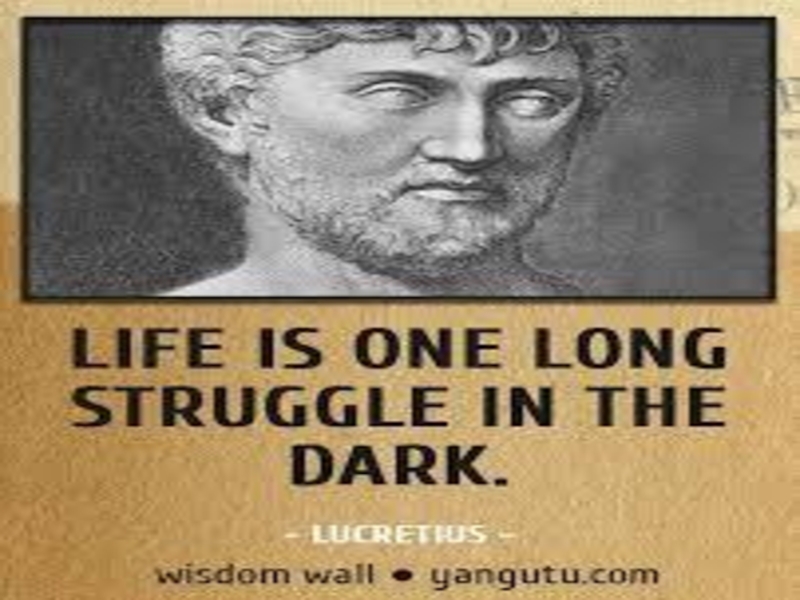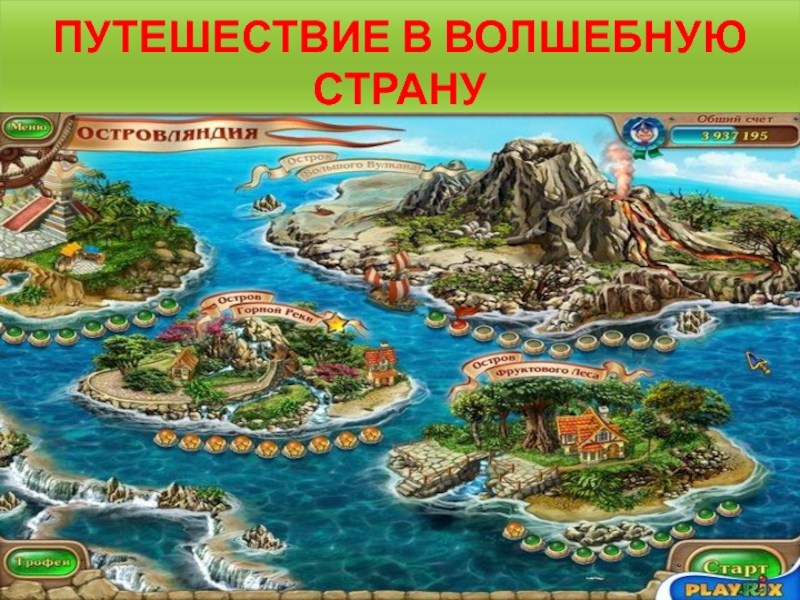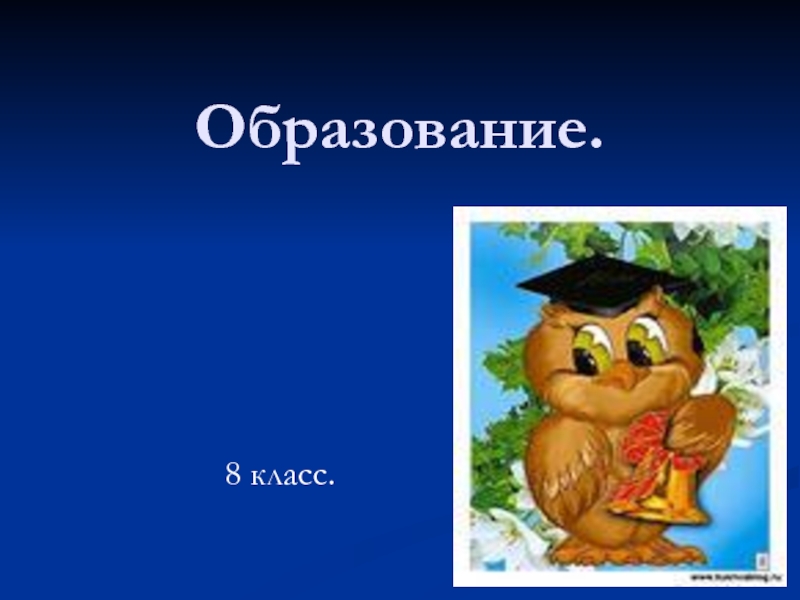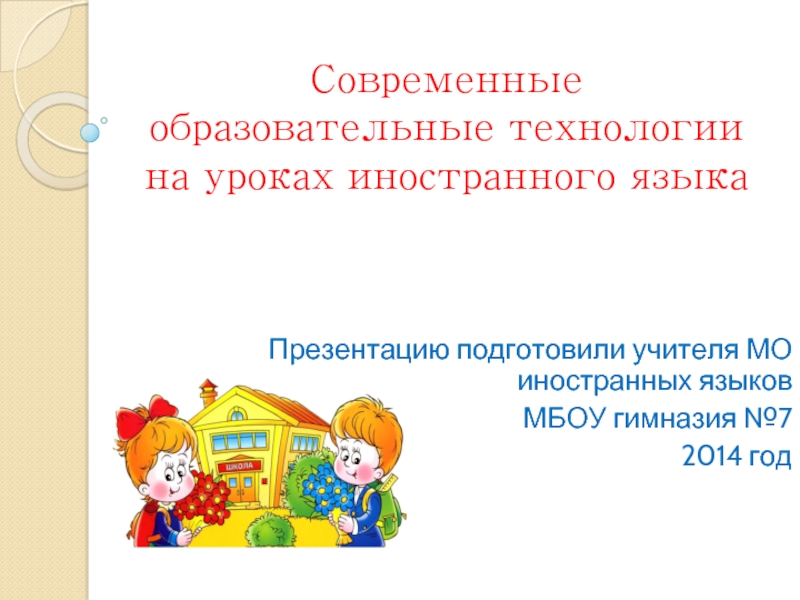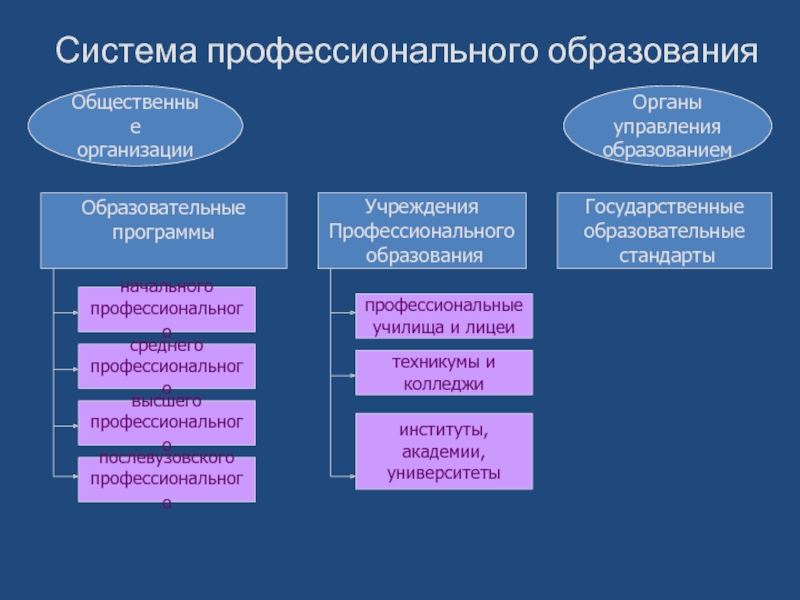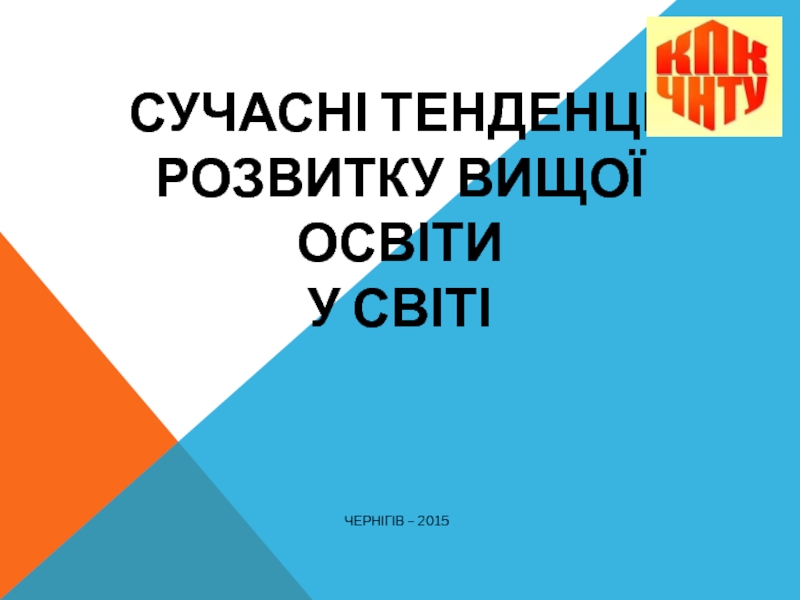- Главная
- Разное
- Дизайн
- Бизнес и предпринимательство
- Аналитика
- Образование
- Развлечения
- Красота и здоровье
- Финансы
- Государство
- Путешествия
- Спорт
- Недвижимость
- Армия
- Графика
- Культурология
- Еда и кулинария
- Лингвистика
- Английский язык
- Астрономия
- Алгебра
- Биология
- География
- Детские презентации
- Информатика
- История
- Литература
- Маркетинг
- Математика
- Медицина
- Менеджмент
- Музыка
- МХК
- Немецкий язык
- ОБЖ
- Обществознание
- Окружающий мир
- Педагогика
- Русский язык
- Технология
- Физика
- Философия
- Химия
- Шаблоны, картинки для презентаций
- Экология
- Экономика
- Юриспруденция
Titus Lucretius Carus презентация
Содержание
- 1. Titus Lucretius Carus
- 2. BRIEF DISCUSSION ON: *LIFE OF THE POET *HIS POEMS *ETHICS *INFLUENCE *CONCLUSION
- 3. TITUS LUCRETIUS CARUS Lucretius (in Latin Titus LucretiusCarus)
- 4. ON THE NATURE OF THINGS The two
- 5. De Rerum Natura has been a continuing influence
- 8. Book 1 begins with an invocation to Venus.
- 9. Book 4 contains verses on the art of
- 10. ETHICS The De rerum natura is, as its title
- 11. Lucretius was both admired and imitated
- 12. De Rerum Natura (“On the Nature of
- 13. We know very little about the life
Слайд 3TITUS LUCRETIUS CARUS
Lucretius (in Latin Titus LucretiusCarus) was A Roman philosopher and
Слайд 4ON THE NATURE OF THINGS
The two most authoritative manuscripts of De Rerum
Слайд 5De Rerum Natura has been a continuing influence on the work of
The sustained energy of Lucretius' writing is unparalleled in Latin literature, with the possible exception of partsof's Annals, or perhaps Books II and IV of the Aeneid.
His use of the hexameter is very individualistic and ruggedly distinct from the smooth urbanity of Virgil.
His use of heterodynes, assonance, and oddly Latin forms create a harsh acoustic.
Lucretius laments several times that Latin is not as well suited as Greek for the expression of philosophical ideas.
Слайд 8Book 1 begins with an invocation to Venus.
Lucretius identifies Venus with love,
and also as the patron and mother of the Roman people.
Book 2 celebrates philosophy as a sanctuary from the turmoil of the world, contains an explanation of atomic motion and shapes, and explains that atoms do not have secondary attributes such as color and smell.
Book 3 opens with a tribute to Epicurus and goes on to alleviate fear of death by proving that the mind and soul are both material and mortal. “Niligitur mors est ad nos. . ." ("Therefore death is nothing to us.”)
Слайд 9Book 4 contains verses on the art of didactic poetry and an
Book 5 is devoted to Epicurean cosmology. Lucretius talks about the stages of life on earth, and the origin and development of civilization. This book includes a famous on the development and extinction of life forms.
Book 6 contains some of Lucretius' greatest poetry. Lucretius explains meteorological and includes vivid descriptions of thunderstorms, lightning, and volcanic eruptions. The poem ends with the story of the great plague of Athens .
Слайд 10ETHICS
The De rerum natura is, as its title confirms, a work of physics,
Слайд 11
Lucretius was both admired and imitated by writers of the early
Слайд 12
De Rerum Natura (“On the Nature of Things”) was published after the
“All religions are equally sublime to the ignorant, useful to the politician, and ridiculous to the philosopher.”
Слайд 13We know very little about the life of Lucretius. It would
Lucretius committed suicide after becoming half mad by drinking a love potion. Lucretius is thus known to have killed himself with his own hand at the age of forty-three. According to the same institution, Lucretius’ only poem, DeRerumNatura, was written during periods of respite from thisdelirium.
